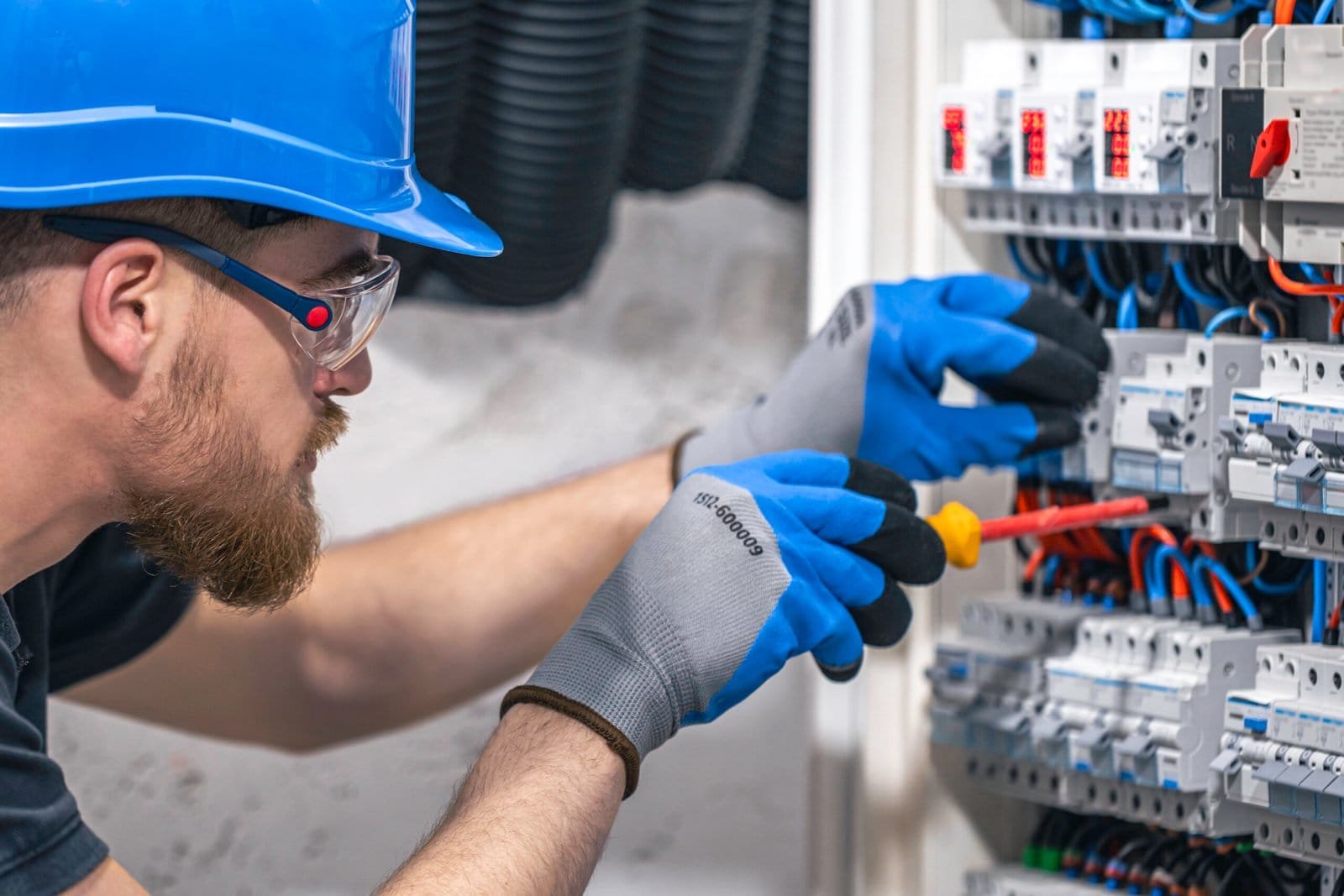Whatever you’re doing, replacing an old fuse box, installing sockets in the loft, or putting in a new kitchen, electrical work is no joke. A job gone wrong can result in more than a few duff lights; we’re talking risk of fire, power outages, and costly rework. And if you live in or around London, you’ll understand that getting some good help is difficult to come by.
If you are considering Electrical Installation Services in London, or even simply doing a small project yourself, there are a couple of things you must do correctly. The best news? Most errors are preventable if you pay attention to what to watch out for.
Why Electrical Mistakes Are More Common Than You Think?
Most homeowners don’t realise how much work is involved in even a “small” electrical project. A wonky socket may not appear to be a significant issue, but it may be the tip of a much greater iceberg behind the walls.
Here’s why things go wrong more frequently than they need to:
- Overconfidence with DIY: Learning about a few things on YouTube isn’t the same as being trained.
- Poor planning: Not planning the layout can lead to sockets in the wrong position or overloaded circuits.
- Using the wrong materials: Cheap wires, ill-matched fittings, or old components can do more damage than good.
- Hiring the wrong people: Not all electricians are equal, and not everybody claiming to be advertised on the net is actually certified.
The Most Common Electrical Installation Mistakes (and How to Avoid Them)
1. Overloading Circuits
One of the simplest mistakes you can make is overloading a single circuit. Tumble dryer, kettle, and microwave all plugged into the same line? You’re looking for trouble.
How to prevent it: Ensure your circuits are correctly balanced, and by upgrading appliances, your system is able to handle the load. A professional electrician will know precisely how to size your circuits appropriately.
2. Poorly Positioned Sockets and Switches
You complete your kitchen makeover only to discover that your kettle lead doesn’t reach the socket. Or worse still, your light switches are concealed behind the door. It doesn’t matter where they’re placed.
How to prevent it: Anticipate, be sensible. Walk through your day. Think about where the furniture will go. A decent electrician will design a layout to work for you, not merely to tick boxes.
3. No Earthing or Poor Bonding
This is serious business. Insufficient earthing or improper bonding can be lethal and even fatal. It exposes every occupant of the house to danger if it malfunctions.
How to avoid it: Always make sure your system is suitably earthed and bonded and that it meets the current UK wiring standards (BS 7671). If unsure, have a check done.
4. Cutting Corners on Cable Routing
Plasterboard covering of wires is usual, but incorrectly done will cause heat build-up, interference, or, in the worst-case scenario, damage caused by nails or screws.
How to avoid it: Adhere to regulations when cabling through walls, ceilings, or floors. Provide conduit where necessary and allow cables to be easily accessed where permitted. This is one of those spots where London electrician truly earn their stripes; they know how to route and shield cables for the long term.
5. Omission of Proper Testing
Just because the lights come on doesn’t mean the installation is safe. Without thorough testing, you’ve no idea what’s going on behind the walls.
How to avoid it: After any major electrical work, insist on a full test and inspection. A certificate of compliance isn’t just for peace of mind; it’s a legal requirement in many cases.
What to Look for in a Good Electrical Contractor?
Not every person who claims to be an electrician is appropriately trained or registered. Ask the following questions before you employ someone:
- Are they NICEIC, NAPIT, or ELECSA registered?
- Can they produce past examples of work similar to this?
- Do they give a written quotation and guarantee?
- Are they insured for the work being undertaken?
Don’t be shy. A professional will expect you to.
Before you get stuck in any electrical work at home, ensure you’ve taken into consideration the following:
- Do you require Building Regulations approval?
- Will you require new circuits or upgrading to your consumer unit?
- Are you fitting energy-efficient lighting and appliances?
It’s wiser to plan too much than insufficiently. An effective consultation with experts in Electrical Installation Services in London will keep you from encountering those costly surprises.

Mistakes That Cost You More Than Money
It’s not rewiring alone. Errors can result in:
- Inadequate inspections at the sale of your house
- Increased insurance rates (or worse, claims denied)
- Increased risk of fire or equipment breakdown
- Delay in renovation due to rework
And if you believe shortcutting saves you money, wait until you’re hiring someone else to fix the mess.
Why You Shouldn’t Rely on DIY Alone?
Yes, it’s tempting. You have the tools, you’ve seen the tutorials, and it’s “just a few wires.”
Electrical work isn’t putting together flat-pack furniture, though. Errors may not immediately appear. Some failures stew quietly until they do actual harm.
If you value safety, compliance with the law, and long-term dependability (as you should), DIY should be limited to replacing a bulb. The rest? Hire professionals.
The Maintenance Role in Avoiding Future Issues
A significant area homeowners neglect: maintenance. Not even a flawless install goes without being inspected along the way, particularly in older properties.
This is where services such as Electrical Maintenance Services in London help. Regular inspections can identify issues before they escalate into crises. Loose connections, faulty insulation, corroded terminals can all deteriorate silently over time.
A yearly inspection by an expert electrician? That’s a good investment.
When You Must Call an Electrician Right Away
When you experience any of the following, don’t delay:
- Burning odor around outlets or switches
- Lights are dimming or flickering intermittently.
- Buzzing from the fuse box
- Tripping circuits frequently
- Blackened sockets
These aren’t quirks; they’re red flags.
Final Thought – You Get What You Pay For
We’ve all heard the horror stories. The guy who quoted half the price and ghosted halfway through. The cheap job that turned into a complete rewire. Don’t fall for it.
Hiring proper Electrical Contractors in London isn’t about spending more; it’s about spending smart. You’re paying for safety, expertise, and long-term reliability. And that’s worth every penny.
Need Reliable Help? Stop Guessing and Call the Pros
If you’re done with flickering lights, dodgy sockets, and risky guesses, it’s time to bring in electricians who don’t cut corners. From complete rewires to minor upgrades, proper maintenance, or system testing, Bradley Scott Electrical get it done right.
Their team isn’t made up of subcontractors or call centre bookings; it’s all in-house, trained, certified professionals who show up, do the job properly, and leave your home safer than they found it.
And if you’re overdue for proper Electrical Maintenance Services in London? They’ll sort it before it becomes an issue.
FAQs
1. What’s the difference between a fuse box and a consumer unit?
A fuse box is the older version of what’s now called a consumer unit. Consumer units have modern safety switches (RCBOs or RCDs) that protect individual circuits and reduce fire risk. If you’ve got an old fuse box, it may be time to upgrade.
2. How often should my home be electrically inspected?
For owner-occupied properties, 10 years is usual. If you rent the house out, 5-yearly inspections are necessary. That being said, if you see something unusual, have it examined earlier.
3. Can I fit light switches and sockets myself?
Technically, yes. But if the cabling behind them is old or ambiguous, it’s simple to get it wrong. And if your modifications include protected circuits, it could become notifiable work according to UK regs. Always safer to double-check.
4. What can I expect from an electrical installation?
A licensed electrician will evaluate the wiring requirements of your home, clarify the process for you, and have all work inspected for safety standards. They will clean up when they’re done and issue documents or certificates as necessary.










